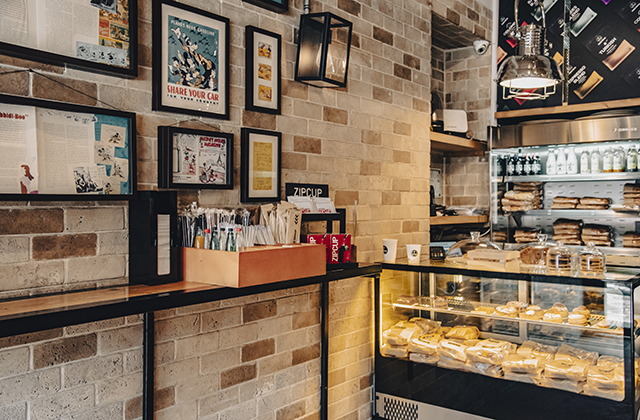TEHRAN (Reuters Life!) – Farshid Aslani will happily tell you his own theory about the discovery of coffee and its origins in Iran if you ask him.
“Around 600 years after Christ, a shepherd found some dry seeds under a bush while grazing his sheep and goats on the mountain slopes of the Iranian plateau,” the owner of Tehran’s popular Raees Coffee chain of cafes said.
While his history of coffee may be obscure and certainly unheard of in the West, Aslani’s cafes and the growing popularity of coffee houses in Iran offering Wi-Fi, snacks, hot drinks and a place to hang out will be strikingly familiar to coffee culture enthusiasts from London to Los Angeles.
Even the circular green logo etched on the windows and printed on the aprons worn by baristas at the four Raees coffee houses in Tehran are so reminiscent of international coffee giant Starbucks – which like most U.S. chains has no presence in the Islamic Republic — that Starbucks tried to sue, according to copies of Tehran court documents seen by Reuters.
The legal action had no impact and Raees still uses the logo which, in place of a mermaid with flowing locks of hair, has a man wearing a top hat. Its cafes also sell Starbucks-branded merchandise including mugs and flasks.
“Raees only has four branches, while Starbucks is the largest coffee house company in the world. We are not comparable to Starbucks,” said Aslani, proudly wearing a pin with the Raees logo attached to his pullover.
GROWING MARKET
But in a country where there are no bars, as alcohol is banned, Raees has proved popular since its first cafe opened in December 2001, offering both a modern environment, complete with wireless Internet access, and — a first in Iran — takeaway coffee.
Many other coffee shops have sprung up in Iran’s major cities where, until recently, tea was the beverage of choice.
“People drink more coffee these days and we try to provide them (with) more facilities,” said Reza Ghafari, the manager of one of the branches of Raees.
Iran’s customs statistics indicate that Iran’s coffee imports have increased sharply. Five years ago the trade was worth less than $600,000. In the first nine months of the current Iranian year (which began in March) imports were more than $3 million.
Even taking into account a doubling in the price of arabica coffee futures since March 2010, the figures show Iran is a small but rapidly growing market for the drink.
“There are lots of other things people can do in coffee shops these days like listening to music, reading books or working on a computer,” said Neda, a 27 year-old Iranian woman in a coffee shop in northern Tehran.
Neda, like most ordinary Tehranis approached by the international media, was reluctant to use her full name to avoid any problems with Iranian security.
“But mostly they are considered as dating places where people can spend some relaxing time with their boyfriends and girlfriends.”
POETS AND POISONERS
Some conservative Iranians regard the modern taste for coffee rather than tea as part of a highly undesirable westernization of the country’s youth.
Although increasingly fashionable in Iran, coffee drinking is far from new. It dates back to the time of the Safavid dynasty in the 16th century, when coffee houses were established as places where poets and artists gathered. The term coffee house (qahve khaneh) has been used to refer to a cafe ever since, even when coffee is not actually served.
Coffee later developed a notorious reputation when it was used by some Qajar kings, who ruled Persia (Iran) from 1794 to 1925, to poison their opponents.
“On special occasions, political figures and clerics who were supposed to be killed secretly were forced to drink poisoned coffee known as Qajr Coffee (Qahve-ye Qajari),” the daily Qods newspaper quoted Iranian historian Mohammad Ebrahim Bastani Parizi as saying last June.
After the 1979 Islamic Revolution, the government started to close coffee shops as part of a broad crackdown on behavior considered immoral, including mingling between sexes outside marriage, banned under strict interpretations of sharia law.
Today, cafes can still fall foul of the authorities. In 2007, Tehran police closed down 24 Internet cafes and other coffee shops in as many hours, detaining 23 people, Reuters reported.
That was part of a campaign to curb practices deemed incompatible with Islamic values, including women flouting strict Islamic dress codes and barber shops offering western hair styles.
“To some extent coffee shops are the symbol of social freedom in our country. A kind of meeting place for young people and others,” said Neda who had turned her empty coffee cup upside down and was waiting for her friend to pick it up and tell her fortune.
Source : Reuters News


